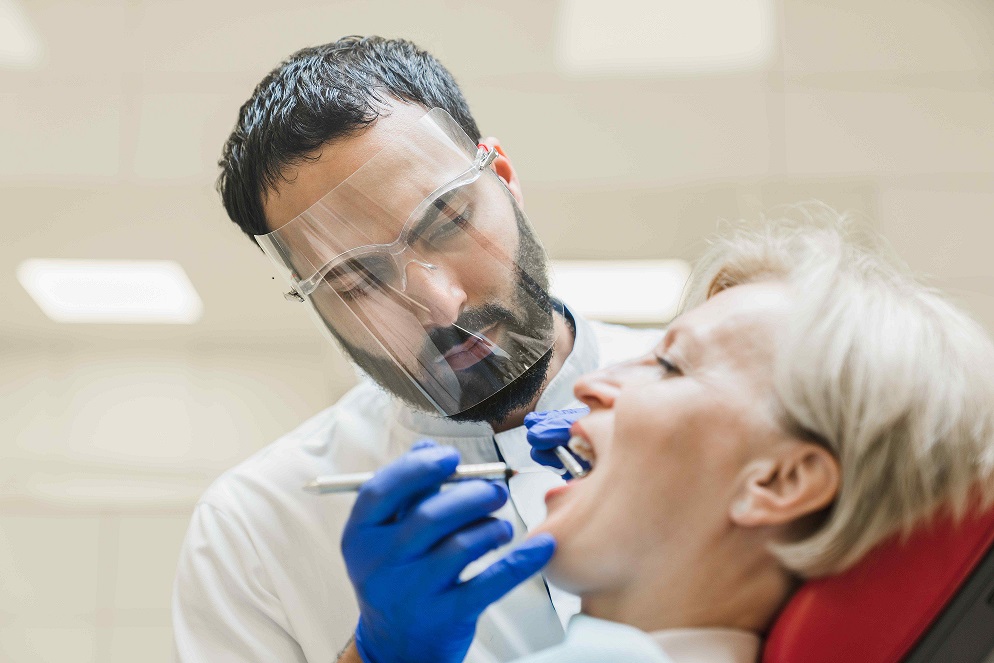
Why Oral Cancer Prevention Matters for All Ages
Oral cancer affects thousands of individuals in the United States every year. According to the Oral Cancer Foundation, one person dies every hour from oral or oropharyngeal cancer. What’s particularly concerning is that many cases are diagnosed in later stages—making treatment more complex and reducing survival rates. However, with early detection, the five-year survival rate can reach up to 85%.
Oral cancer doesn’t just affect older adults. People of all ages—including children, teens, and young adults—can be at risk, especially with the growing link between the Human Papillomavirus (HPV) and oral cancers. That’s why it’s important to view prevention and screening as a family-wide priority.
Recognizing the Early Signs of Oral Cancer
One of the biggest challenges with oral cancer is that it often develops without noticeable symptoms in its early stages. That makes routine dental visits and awareness of early warning signs essential. Some of the symptoms that should prompt a dental check-up include:
- Sores or ulcers in the mouth that don’t heal within two weeks
- Red or white patches on the gums, tongue, or cheeks
- Lumps, swelling, or thickening in the mouth or neck
- Persistent sore throat or hoarseness
- Difficulty chewing, swallowing, or speaking
- Unexplained pain, tenderness, or numbness in the mouth or facial area
It’s important to remember that these symptoms don’t always indicate cancer—but they do warrant professional evaluation.
A Proactive Approach to Oral Cancer Prevention
Comprehensive Screenings for All Age Groups
Many dental practices now incorporate oral cancer screenings into routine dental exams. These screenings are typically painless and include:
- A visual inspection of the lips, tongue, cheeks, palate, and throat
- Gentle palpation (touch-based examination) to check for lumps or tissue abnormalities
- A review of personal and family medical history to assess risk factors
Some dentists may use adjunctive tools like special lights or dyes to help identify abnormal tissue that may not be visible under standard lighting. Ask your dental provider what methods they use during screenings.
Diagnostic Tools and Techniques
While not every practice uses advanced technology, many dental professionals have access to diagnostic aids that can support early detection. These may include:
- Digital imaging or photographs to monitor changes over time
- Oral cytology (brush biopsy) to collect cells for lab analysis
- Special light-based devices (e.g., fluorescence or chemiluminescence tools) to spot tissue irregularities
These technologies help identify potentially precancerous or cancerous tissues at an earlier stage, when treatment is typically more effective.
Education and Risk Reduction
Education plays a major role in reducing oral cancer risk. Dentists often counsel patients on lifestyle choices that contribute to prevention. This includes:
- Avoiding tobacco in all forms (smoking, chewing, vaping)
- Limiting or eliminating alcohol consumption
- Using lip balms with SPF when exposed to the sun
- Eating a diet rich in vegetables, fruits, and antioxidants
- Practicing good oral hygiene and scheduling regular dental checkups
Patients may also be encouraged to perform self-examinations at home to monitor for changes between dental visits.
Personalized Prevention at Every Life Stage
Prevention strategies should be adapted based on age and individual risk factors. Here’s how oral cancer prevention can be integrated across the family:
Children and Teens
While the risk for oral cancer in children is low, early education lays the groundwork for healthy habits. Dental visits in childhood offer a chance to introduce the idea of self-awareness and regular checkups. For teens, particularly those becoming sexually active, awareness around HPV and its link to oral cancer is important.
HPV vaccinations, which are widely recommended for preteens and teens, may help reduce oral cancer risk later in life.
Adults
Adults face increased exposure to oral cancer risk factors, such as tobacco, alcohol, and HPV. Regular screenings during dental visits are especially important during these years. Conversations with dental professionals can help assess personal risk and establish healthy behaviors to reduce long-term danger.
Seniors
As we age, the risk of oral cancer increases, particularly for those with a history of tobacco or alcohol use. Seniors may also face oral changes due to medication side effects or immune system changes. Continued screenings remain vital, especially for those wearing dentures, as cancerous changes can be hidden beneath oral appliances.
The Importance of Routine Dental Visits
Routine dental checkups go beyond preventing cavities and gum disease—they are a critical part of overall health monitoring. Dentists are often the first to notice signs of serious conditions like oral cancer.
Recommendations Include
- Dental checkups and cleanings every six months
- Annual oral cancer screenings for individuals of all ages
- Immediate evaluation of any concerning symptoms between visits
If your dentist identifies something unusual, they may recommend follow-up imaging, referral to a specialist, or a biopsy to rule out cancer.
Self-Advocacy and At-Home Awareness
In addition to professional screenings, individuals and families can be proactive at home. Here are a few simple steps to help stay vigilant:
- Perform monthly self-exams by checking the tongue, gums, inner cheeks, and throat for any changes
- Encourage children and teens to report anything unusual in their mouths
- Avoid risk factors like smoking or excessive drinking
- Maintain a balanced diet and stay hydrated
- Visit your dentist promptly if any symptoms develop or persist
Creating a Family-Wide Culture of Prevention
Just like wearing sunscreen or going for annual physicals, oral cancer screening should become a routine part of your family’s healthcare plan. Encourage open discussions at home, and model healthy behaviors for your children.
If you have aging parents or grandparents in your care, make sure they’re also receiving regular dental screenings. Oral health doesn’t end with childhood—it’s a lifelong commitment.
When to See a Dentist About Oral Cancer
If you notice any of the warning signs mentioned earlier, or if you simply want peace of mind, schedule an oral cancer screening. Dental professionals are trained to recognize even subtle signs of concern and can help guide you through the next steps if further evaluation is needed.
It’s also a good idea to discuss your personal risk factors with your dentist. Things like tobacco use, alcohol consumption, sun exposure, previous cancer history, and family medical history all influence how often you may need to be screened.
In Summary: Oral Cancer Prevention Starts with Awareness
Oral cancer is a serious health issue, but it’s also one where early detection and lifestyle choices can make a big difference. By staying informed and making oral cancer screenings a routine part of your family’s dental care, you take an important step toward long-term health and peace of mind.
Prevention isn’t just about avoiding disease—it’s about empowering every member of your family to take control of their health, no matter their age.
Book Your Family’s Oral Cancer Screening Today
Early detection saves lives. Don’t wait for symptoms to appear—schedule an oral cancer screening today at Modern Family Dentistry and take an essential step toward protecting your family’s health. Visit Modern Family Dentistry | Book your screening online | Call us today for expert family care!
